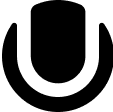The Founder and Managing Director of CourtSense Tennis Training Centers shares more on his innovative training program, time on the tour and answers UTR's lighting round
UTR had the chance to speak with Gordon Uehling, the founder and Managing Director of CourtSense Tennis Training Centers, which is known for its innovative approach to tennis training. CourtSense has
recently adopted the UTR Powered by Oracle system into its training centers. We spoke with Gordon to learn more about his training and coaching methodology, his inspiration for CourtSense, and how he uses technology on the court. And of course, he answers UTR's lightning round!
Tell us more about CourtSense Tennis Training Centers – what is your mission and what sets you apart?
CourtSense is a program I started in 2002 with a very talented master coach, Carlos Cano. I was lucky enough to travel with him when I played on the tour. We named our program CourtSense because we didn’t want it to be about any individual person; we wanted it to be about a team of coaches who all believe in the same philosophy and methodology. We always felt a team that rowed in the same direction would always be significantly more impactful than any individual person. We also like the name CourtSense, because we try to use all of the senses in our teaching - visual, auditory and feel.
We spent a lot of time finding senior, experienced and talented coaches who coach tennis for the right reasons. We’ve collaborated to build an online e-learning platform that teaches the art and science of coaching to people that want to make a career in coaching. We are launching it internally this fall and hope to share it with many others in the near future.
"I always dreamed of having a tennis center that could serve ALL types of athletes. I felt all would greatly benefit if they had well thought out science and experienced- based progressions to learn from."
I was an education and art major in college, and I grew up with dyslexia, so I’ve always had a lot of compassion for people that learn differently. School was always a challenge, but sports and the visual arts came easily. I always dreamed of having a tennis center that could serve ALL types of athletes. I felt all would greatly benefit if they had well thought out science and experienced- based progressions to learn from.
I was mentored by different legends in our game... Dr. Jim Loehr, a world renowned expert in sports psychology, and Jose Higueras who was a top-10 player in the world and coached numerous #1 players in the world, are among the many influences I’ve been lucky enough to have.
The truth is that the dedication and passion our international staff brings on a daily basis is what makes our program so special. We all believe that the Art of Coaching + Sports Science = Magic.

CourtSense leverages state of the art technology in its training programs
CourtSense is known for its use of tech in its training programs, can you tell us more about that?
At CourtSense we have many different state-of-the-art technologies. We have PlaySight technology on all of our courts, which allows us to analyze what is happening on the court and look at all different angles of player performance, and its cloud based so we can access player videos anywhere to support our coaching as well as get insights from the statistics that are provided.
Our ball machines and serving machines are synched with iPads and iPhones, which lets us immediately go to specific drills and our coaches can actually coach next to the player when using the ball machine. Then there is Optogait, a technology that evaluates a player’s movement down to the 1,000th of a second, and of course, now UTR.
We also use tools provided by Posit Science which trains a player’s brain while our players engage in their fitness - there are a lot of aspects that we look at to provide objectivity for a player and we use it to create the player’s individual experience. It has been fantastic for our coaches, kids and parents.
We also have courts with every single type of Grand Slam surface at our “blue chip” facility, as well as 16 indoor courts at both Tenafly and Bogota Racquet Club.
What are some of the programs you offer for players?
We start at 3 years old - so we have all the progression ball programs. Our Tenafly location is focused on the younger high performance kids who are 10 and under as well as many recreational kids and adults. Bogota Racquet Club is our high performance academy for kids that tend to be from 11-17 years old. These are the kids that are usually trying to play college tennis and beyond.

CourtSense offers programs for players of all ages
How do you develop your coaching and training programs?
Every player is unique, so we build our training based off what the player’s goals are, and once we establish who they are, we then explain why we feel they should go in the direction we are proposing for them. In other words we try to get our students pumped up by tapping into their spirit and
inspiring them first. Once we have the players full engagement then we get into how to go about getting better whether it is technic, footwork or decision making on court or combination of any of the three. Then finally we make sure they understand what to do with their newly learned skills as they try to compete in the best way possible.
"I found from my tennis travels around the world that most coaches tend to think of their players as “my player”. At CourtSense, we think of our students as “our player”. We have managed to create a very healthy environment where we as a staff communicate with each other with suggestions and thoughts ultimately making a stronger and healthier environment for our players."
When I was on the tour, I was in 30 different countries around the world, and I studied a lot of the facilities. Many only had 1-2 really good coaches and the rest were more fillers without any real education or desire. We have a methodology and culture that incorporates a lot of training and mentoring to becoming a CourtSense coach.
Today, we have 23 full-time coaches. We are very much about having a team that is committed to the program all year round, which gives our coaches security and allows them to follow a player throughout their development so the player doesn’t have too many voices in their head.
I found from my tennis travels around the world that most coaches tend to think of their players as “my player”. At CourtSense, we think of our students as “our player”. We have managed to create a very healthy environment where we as a staff communicate with each other with suggestions and thoughts ultimately making a stronger and healthier environment for our players.
How do you see UTR benefitting the game of tennis?
We are over the moon with excitement about UTR! Mark Leschly is an incredible leader. I’ve gotten to know him well and I think he’s going to take tennis to another level around the world. I’m really excited about what UTR will provide our community. A platform that encourages kids to play adults regardless of gender will be incredible. I’m sure this will also ultimately stimulate more lessons which is great for the game. UTR is an objective way to show all players what their level is, instead of a pro giving their subjective opinion on their level. It has already created a healthy, competitive environment and now seeing all the new technologies they are providing gets us even more excited.
"UTR is an objective way to show all players what their level is, instead of a pro giving their subjective opinion on their level. It has already created a healthy, competitive environment and now seeing all the new technologies they are providing gets us even more excited."
At CourtSense, we’re planning to do a foundation and looking to help kids out there who are less fortunate. Having an objective tool to see where they stand amongst other kids their age internationally will prove to be an invaluable tool for any scholarship situation. You really understand what your current level is as a player through UTR. We want kids in our programs to develop good character traits - to be good people, grateful, kind and competitive, and have grit with a great moral compass. When you add that on top of what UTR brings, it’s an objective way to see to see the player as a whole.
We are proud to be a partner for the duration and excited to see where tennis is going with UTR.

CourtSense training room
What are some of your favorite memories from playing on the
tour?
I won a round in a challenger in Sylt, Germany. I grew up as a hockey player and never played much junior tennis. It was 10 ATP points, so that was a big deal in my personal tennis career!
I was lucky to be able to train with players that are legends in the game like Jim Courier, Pete Sampras and Todd Martin, and I got to pick their brains to understand what separated them from others. I went out on tour for 9 years with the primary focus of creating CourtSense, so it was really valuable to be able to reflect with champions and get into what makes them tick and what
makes them successful. I also felt very honoured to be part of Novak Djokovic’s team for many years - he is like a brother to me.
Gordon's Lightning Round
Favorite player: Novak Djokovic
Favorite tournament: US Open
Forehand, backhand or volley: Backhand
Clay, hard or grass: Clay
How often do you play? About 3 times a week, but it depends on
the week!
Your Tennis Motto: Mind, Feet, Hands
What's your UTR? 10.0 now since I don’t compete
anymore...
 CourtSense leverages state of the art technology in its training programs
CourtSense leverages state of the art technology in its training programs CourtSense offers programs for players of all ages
CourtSense offers programs for players of all ages CourtSense training room
CourtSense training room




